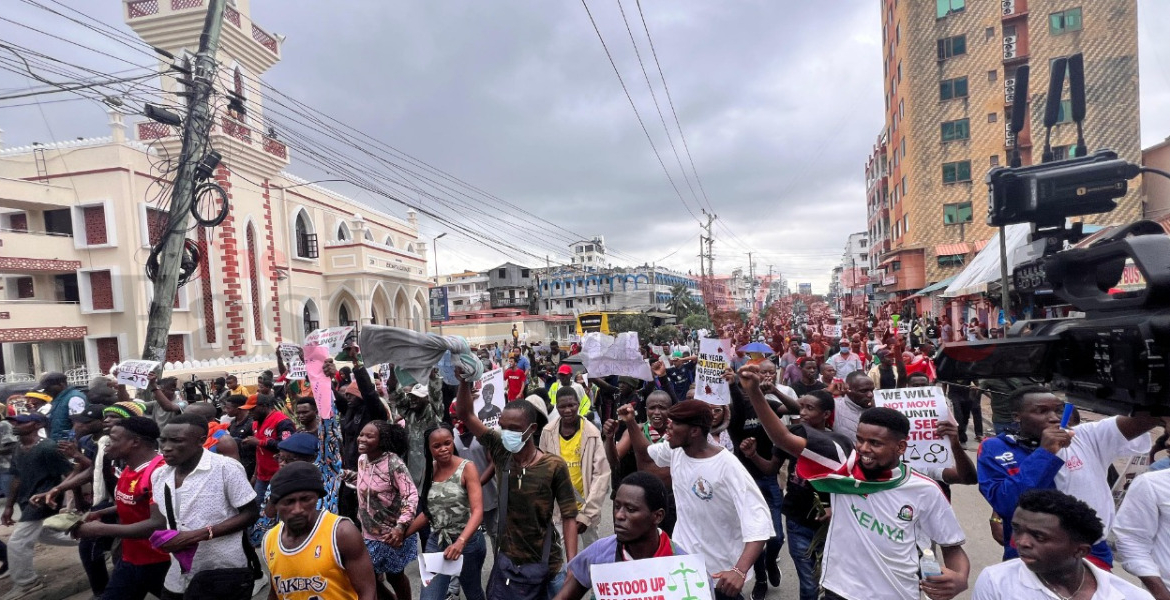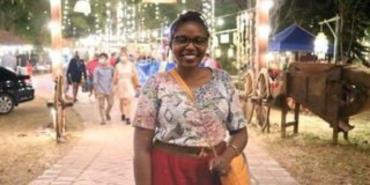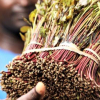Kenyan Diaspora Condemns Government Crackdown on Protesters

The Kenyan diaspora is sharply criticising the Kenyan government's response to recent protests, including violent crackdowns on demonstrators and a media blackout imposed on 25 June.
This raises concerns about state censorship and escalating police brutality. Representatives from the diaspora, speaking from Washington, D.C., are accusing the Kenyan government of undermining constitutional freedoms and warning of a drift towards authoritarianism. Their intervention follows widespread demonstrations across Kenya commemorating the one-year anniversary of the Gen Z protest movement.
Peaceful gatherings evolved into deadly confrontations, with human rights groups reporting at least eight fatalities and over 400 injuries sustained during clashes between protesters and security forces. Among the injured are police personnel who are currently receiving specialised medical treatment. The demonstrations spanned 23 counties, according to human rights monitors, with major urban centres such as Nairobi, Mombasa, Kisumu, and Nakuru becoming focal points for clashes.
In Nairobi, police erected barricades around Parliament and the President's offices, deploying razor wire and armed personnel. Observers report that security forces used tear gas, rubber bullets, batons, and, in some instances, live ammunition to disperse crowds. Concurrently, the Communications Authority of Kenya (CAK) directed major news outlets, including NTV, KTN, and Citizen TV, to halt live broadcasts.
This suspension of media coverage has been met with swift condemnation from civil society and diaspora organisations, which describe it as a direct assault on press freedom and a deliberate attempt to stifle transparency.
"This blatant violation of constitutional press freedoms demands the harshest public and legal condemnation," the diaspora group said, calling for the immediate restoration of broadcasting rights and denouncing what it regards as an illegal attempt to conceal the government's tactics.
The protest movement, largely youth-led, stems from mounting frustrations over governance, economic marginalisation, and perceived democratic backsliding. Demonstrators rallied under the banner of peaceful resistance, often carrying flowers and placards. Diaspora leaders are lamenting what they perceive as a disproportionate and violent state response.
"Protesters came unarmed, in peace, bearing wreaths, not weapons. In response, the government unleashed teargas, riot police, and brute force upon its own people," the group said.
They are also expressing concern over reports of arbitrary arrests and alleged abductions of activists in the days leading up to and during the demonstrations.
Among their demands is a public commitment from President William Ruto to guarantee the right to peaceful assembly and to affirm that no Kenyan will be subjected to torture, abduction, or extrajudicial killing for exercising their constitutional rights. The diaspora maintains that such assurances are crucial for restoring public trust.
"When a government fires on its own people and shuts down the media, it ceases to be leadership, it becomes tyranny," the statement continued.
The group warns that if the state continues on this path, it risks provoking both domestic discontent and international scrutiny, including potential legal consequences. This diaspora collective emphasises its long-standing involvement in civic reform efforts in Kenya. They cite decades of engagement in constitutional advocacy and electoral accountability, arguing that their involvement is both legitimate and necessary.
"For decades, the diaspora has stood at the forefront of constitutional reform and civic advocacy. We will not stand by as the government tramples on the rights and dignity of the Kenyan people," they said.
The escalating tension between the government and its citizens is raising concerns among international human rights organisations. Amnesty International's Kenyan chapter has corroborated reports of fatalities and excessive use of force, also confirming the mass referral of injured individuals to hospitals across the country. Reports indicate that some victims have sustained gunshot wounds, fuelling allegations of lethal force against unarmed civilians.
The Kenya National Commission on Human Rights, a state-funded body, has verified the scope of the protests and the extent of injuries. Preliminary reports document more than 60 arrests, raising questions about whether protesters' rights to due process and lawful assembly are being upheld. The state's move to obstruct media coverage has struck a sensitive chord in a country where press freedoms, though constitutionally protected, have faced periodic threats. The Kenya Editors Guild and other press bodies are decrying what they perceive as an intensifying clampdown on independent journalism.
President Ruto's administration has remained largely silent on the diaspora's demands. Government officials have cited the need to maintain law and order but have not offered detailed explanations for the suspension of broadcasting or the heavy deployment of security forces. The international community is beginning to take notice. Legal scholars and human rights defenders abroad are calling for an independent inquiry into the events of 25 June and into the broader state response to civil protests.
Several diaspora groups have raised the possibility of pursuing cases in international tribunals, arguing that state-sanctioned violence violates both domestic and international legal standards. The current standoff is occurring at a critical time for Kenya's democratic institutions. Analysts are warning that without concrete government steps to address grievances, uphold freedoms, and de-escalate tensions, public confidence in state legitimacy could further erode. The memory of last year's Gen Z protests remains vivid, and the latest demonstrations underscore a deeper, unresolved disconnect between youthful civic movements and the political establishment.
Despite the heavy-handed response, organisers and diaspora supporters maintain that the momentum for justice and reform remains strong. "Kenya is in pain. But the people will not be silenced," the Washington-based group affirmed in their closing remarks.








Comments
I read elsewhere waIchung’wa…
Permalink
I read elsewhere waIchung’wa complaining.I appeal to Bubu to bend his(Kimani’s) neck aache ufala.
Add new comment